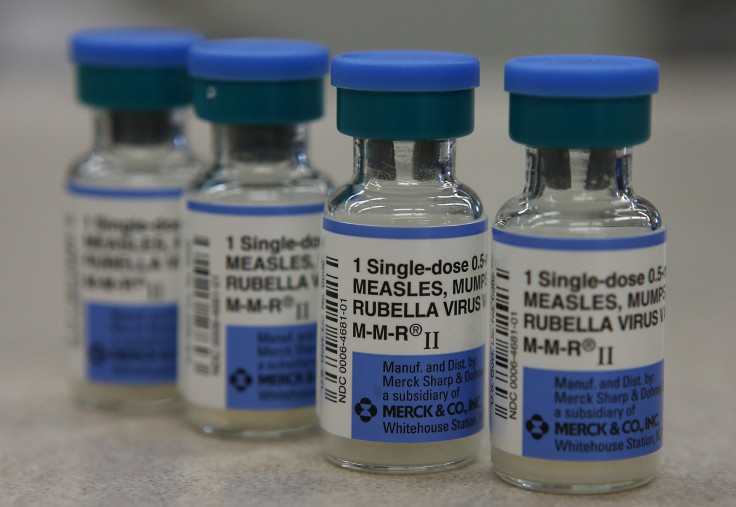Measles Vaccine Refusal Could Be Fined In Germany, Kindergartens Could Remove Children

Germany’s health minister announced Sunday that parents who refuse to vaccinate their children against measles – also known as anti-vaxxers – will be required to pay up to 2,500 euros ($2,796) in fines, according to a proposed bill.
Measles – an extremely contagious virus which is transmitted through coughing and sneezing, and results in runny nose, throat infection, fever and red rashes – can be prevented with the MMR vaccine, which also protects against mumps (a viral infection affecting the salivary glands) and rubella (a viral infection causing a distinctive red rash).
"I want to eradicate measles," Health Minister Jens Spahn told German newspaper Bild am Sonntag, DW reported. "All parents should be secure in the knowledge that their children will not be infected and endangered by measles."
In addition, Spahn said children who had not gotten vaccinated will not be allowed to attend kindergarten. "Kindergartens have children under 10 months of age, who are… especially threatened," Spahn told the paper.
Schoolchildren, who did not receive proper vaccinations, will not be banned from their institutions as elementary education is mandatory in Germany. Hence, the alternate solution to levy a fine from their parents was proposed.
The bill – if made into law – is expected to go into effect July 2020, which meant that parents of children who went to kindergarten and schools would have a year to gather documents proving that their kids had received the required immunization shots. It would also be mandatory for employees of hospitals and private medical practices to get measles vaccinations. People like organ recipients or those suffering from terminal diseases like leukemia, who were unable to get vaccinated, will have to provide health officials with proofs of the respective medical conditions to get exempted from paying fines.
In January and February 2019, an alarming 164 cases of measles were reported in Germany, according to an April report published by the European Centre for Disease Prevention and Control. The worst affected countries in Europe since March 2018 were Italy (2,498), France (2,474), Greece (1,412) and Romania (1,307). Compared to them, Germany had 651 reported cases of measles since March 2018.
Last year, there were 82,596 reported cases of measles in Europe, with 72 deaths as a result of the disease, the World Health Organization reported in February.
Even the United States was not spared from the deadly virus. Although the disease was said to have been eradicated from the country in 2000, the Centers for Disease Control and Prevention (CDC) said, in a recent report, 685 cases of measles were confirmed in 22 states as of April 2019.
The health agency explained that the primary reason for the new outbreaks of measles in the U.S. was due to anti-vaccine supporters, who were misinformed about the virus and the vaccinations required to prevent the disease. As a result, they built their beliefs on false presumptions and conspiracy theories.
“Some organizations are deliberately targeting these communities with inaccurate and misleading information about vaccines. CDC continues to encourage parents to speak to their family's healthcare provider about the importance of vaccination. CDC also encourages local leaders to provide accurate, scientific-based information to counter misinformation," CDC said in a statement.
© Copyright IBTimes 2025. All rights reserved.






















